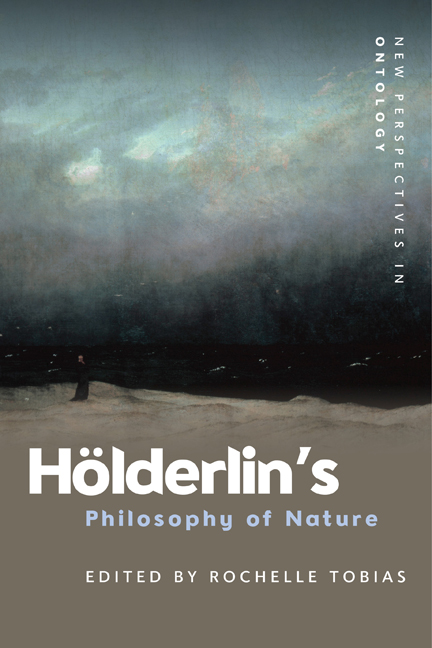5 - The Untamed Earth: The Labour of Rivers in Hölderlin's ‘The Ister’
Published online by Cambridge University Press: 08 October 2020
Summary
What would move a river to leave its hiding place? What could compel it to abandon its source? Why would it venture into a valley where it would be exposed to the heat of the sun, when it could still enjoy the protection of trees and rock? These are familiar questions in Hölderlin's late poetry, which returns again and again to the theme of the rivers that at once connect mortals and immortals, while at the same time holding them apart so that each may relate to the other as ‘harmoniously opposing’ terms, to borrow an expression from Hölderlin's poetic theory. Rivers make music, or better yet they establish harmony. It is, however, a harmony that can be disrupted at any point owing to an excess of matter or spirit. Rivers can overflow, or alternatively they can dry up; they can resist the banks that surround them, or these same banks can resist and impede their progress. Either event exposes the uneasy relationship between spirit and matter that is the basis of life for Hölderlin.
Life emerges out of a conflict, a contest between organic and aorgic tendencies, which can be quelled but never overcome or resolved permanently. Whenever these two tendencies are reconciled, a cosmic accord is achieved, which is expressed in art and poetry. For Hölderlin, poetry flows like the rivers that turn deserts into luxuriant fields, as he notes in more than one poem. In ‘The Ister’, for instance, he writes with uncharacteristic bluntness, ‘For rivers make arable / The Land’ (Poems and Fragments, 513) and in ‘The Rhine’ he likewise underscores that the river, which he identifies as a father, ‘supports dear children / In cities which he has founded’ [liebe Kinder nährt / In Städten die er gegründet] (Poems and Fragments, 435; FHA VIII, 830). Finally in ‘As on a holiday …’ he compares the rivers that irrigate fields to the grapevine, which combines heavenly fire (i.e. lightening) and telluric elements in its fruit and in so doing tames both impulses. Indeed the synthesis of these two harmoniously opposing forces produces wine, which is as much a symbol of culture as of agriculture, of poetry as of collective life: ‘And hence it is that without danger now / The sons of Earth drink heavenly fire’ [Und daher trinken himmlischen Feuer jetzt / Die Erdensöhne ohne Gefahr] (Poems and Fragments 397; FHA VIII, 558).
- Type
- Chapter
- Information
- Hölderlin's Philosophy of Nature , pp. 75 - 93Publisher: Edinburgh University PressPrint publication year: 2020

